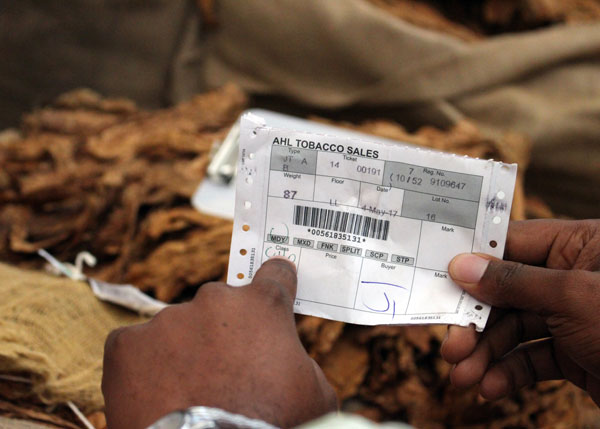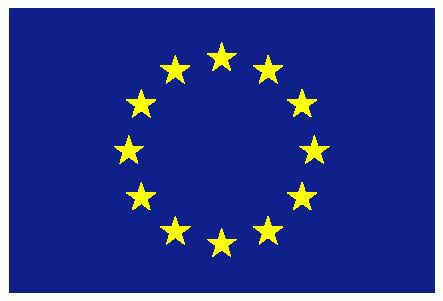The Malawi Parliament on Monday passed the Tobacco Industry Bill, which, among other things, bans buyers from growing tobacco or engaging in the transport and grading of tobacco, according to a story at Malawi24.com.
The law is aimed also at strengthening tobacco associations by increasing membership from 3,000 to 5,000.
Speaking after the bill was passed, the Minister of Agriculture Joseph Mwanamvekha said the new law meant farmers would no longer be ripped off by buyers. It would introduce sanity to the tobacco industry.
“In the past, the farmer was ripped off,” he said. “The farmer signed the contract without knowing the prices he would be offered.”
The minister claimed also that the law would help reduce poverty because farmers would earn more.
However, last week, the Member of Parliament for Karonga North, Frank Mwenefumbo, opposed the bill saying it would benefit only companies.
Mwenefumbo, who is a member of the Alliance for Democracy (AFORD) party, said people in his constituency were against the bill because farmers were aware that it would favor the tobacco companies rather than the farmers.
“Let us put our farmers first and the rest should come second; farmers are the ones who put much effort and money in tobacco business but what do they gain at the end of the day: peanuts, which is not fair to our farmers,” he said.
“These companies are making a lot of profits from our farmers’ sweat; farmers should therefore have all the powers and the companies should surrender their licenses to our farmers; otherwise, this bill is no of use.”
Category: Regulation

Growers "ripped off"

China faces dilemma
The Chinese Association on Tobacco Control has suggested changing the emphasis on public-places smoking regulation so that it is no longer something that ‘should be controlled’ but something that ‘must be banned,’ according to a China Daily report.
The Association put forward its suggestion during a panel discussion on a draft of the Promotion Law on Basic Medical Treatment and Public Health, which is being reviewed by the legislature.
The suggested revision was not only reasonable but also urgently needed because China had not made any breakthroughs in tobacco control since it signed the World Health Organization’s Framework Convention on Tobacco Control in 2003, the Legal Daily said.
The country’s smoking rate had remained largely unchanged at about 27 percent, and 740 million people suffered from the effects of inhaling second-hand smoke. It was estimated that at least one million people died of smoking-related diseases in China each year.
The fight against tobacco use has been an uphill battle because the state-owned industry is a reliable source of government revenue and a large job creator, which means that it can bring its influence to bear on any efforts that might affect its business.
Last month, the China National Tobacco Corporation urged its local branches to try to fulfil the annual sales objective of 47.38 million boxes of cigarettes – each box contains 50,000 cigarettes – a sales figure that has remained stable or slightly increased during recent years.
The Legal Daily said the Healthy China 2030 plan, adopted by the central authorities in 2016, had proposed reducing the smoking rate from 27 percent to 20 percent. Anti-smoking legislation was needed to realize that objective.
China would take a big step forward in tobacco control if the suggested revision could be adopted-from ‘should be controlled’ to ‘must be banned’ – and if the types of public places where issues of second-hand smoke were most serious were specified.
‘If the revision becomes law, a number of local laws and rules on public health and tobacco control will be amended,’ the Daily said. ‘The current wording of “should be controlled” would give the local lawmakers too much space to turn a blind eye to the problem, which is an important reason why tobacco use has not been put under effective control till now.
‘Hopefully, the revision can be endorsed and strictly implemented with supporting supervisory and punitive measures, which wait to be written into the law, so as to endow the law with deterrent forces to thwart smoking in public places.
‘Also, more efforts are needed to raise the public awareness of the harm smoking can inflict on people’s health, as well as the necessity of protecting young people, particularly adolescents, from tobacco use.’
Smoking a male preserve
A joint survey by Egypt’s Ministry of Health and Population and the World Health Organization has found that 22.8 percent of Egyptians are consumers of tobacco in various forms, according to an Asharq Al-Awsat story.
Among men, the figure is 43.6 percent, while among women it is 0.5 percent.
Dr. Doaa Al-Saleh, co-ordinator of the WHO Framework Convention on Tobacco Control (FCTC), seemed to suggest that the figure for smoking among women was an underestimate due to the methodology of the survey. The researchers had visited people in their homes where, in the presence of a husband, father or brother, a woman was most likely to deny smoking whether she did or did not.
Saleh said that in the future researchers hoped to conduct interviews with women in places such as universities and clubs, where they were more likely to give the correct answers.
FDA issues warnings
The US Food and Drug Administration said yesterday it had issued a warning letter to Electric Lotus for selling nicotine-containing e-liquids with labeling and/or advertising that cause the liquids to resemble kid-friendly food products, such as cereal, candy, and peanut butter and jelly.
The FDA, in a note issued through its Center for Tobacco Products, said its action was part of the agency’s ongoing effort to protect kids from tobacco products.
Electric Lotus ‒ a manufacturer, distributor and retailer, based in Redlands, California ‒ was also cited for illegally selling products to a minor, for failing to list its products with FDA and for selling e-liquids without the required FDA premarket authorization.
“We’re seeing too many cases where companies are designing e-liquid products in packages that resemble children’s food items and this sort of egregious marketing can lead to accidental ingestion of potentially lethal doses of nicotine by young kids,” said FDA Commissioner Scott Gottlieb, MD.
“There’s no excuse for this sort of packaging and we’ll continue to target these products and the companies that market them.
“FDA will also continue to implement new steps to make sure children aren’t started down a path to nicotine addiction and tobacco use. Those include actions to target those who design products in ways that are clearly marketed to appeal to children. No child should be using any tobacco product. We’ll continue to hold industry accountable to ensure these products aren’t being marketed to, sold to or used by kids.”
The products outlined in the new warning letter were said to include, for example: ‘“Cereal Treats Crunch,” which resembles Cinnamon Toast Crunch cereal products; “Cereal Treats Loopz,” which looks like Froot Loops cereal; “Cereal Treats Charms,” which resembles Lucky Charms cereal products; and “Cereal Treats Krispies,” which looks like Rice Krispies Treats cereal’. Many of these products were said to have cartoon characters on their labeling and/or advertising.
The FDA has requested that the company responds within 15 working days to describe how it intends to address the agency’s concerns.
‘Failure to correct violations may result in further action such as seizure or injunction,’ the FDA note said. ‘In addition, misbranded or adulterated products imported into the United States are subject to detention and refusal of admission.’
Protecting growers
Debate on a report on Malawi’s Tobacco Industry Bill by a joint parliamentary committee has been deferred by the leader of the House, Kondwani Nankhumwa, according to a story in The Maravi Post.
The bill, which was tabled in June this year before being referred to the joint committee, seeks to consolidate the Tobacco Act and the Control of Tobacco Auction Floors Act into one law.
It also seeks to introduce regulations specifically designed to cover contract farming, whereas previously only the auction system was recognized in law.
Presenting the report to the House, committee chairperson Joseph Chidanti Malunga said the bill would regulate contract farming and fill the gap in the legislation.
He said the committee had taken into consideration the fact that contract farming would drive auction marketing to extinction.
“The joint committee was of the view that the bill should not provide for any quota,” he said. “The markets should be left open and the market dynamics should prevail and determine volumes of tobacco to be produced and sold under either system.”
The Post report said that, under the contract farming system, growers suffered a lot of deductions, many of which they become aware of only ‘when the tobacco was being sold by the buyer’.
The committee was said to have received submissions that contract farming should be eliminated because it had proved to be less profitable for growers than the auction system, even though contract tobacco was sold for a higher price than was auction tobacco.
“The committee considered the submission and formed the view that the funded contract system should be retained because not all farmers can afford to produce tobacco with their own resources,” said Malunga. “If it is abolished, growers will be forced to get loans from commercial banks who charge exorbitant interest rates.”
However, the committee has recommended additional provisions aimed at protecting growers operating under contract farming from deductions not properly spelt out and other financial burdens.
Smoking rate rise in Canada
Health Canada is looking for outside experts to review its tobacco control strategy – a federal program that seems to have hit a wall after years of helping to drive down smoking rates, according to a story by John Paul Tasker for CBC News.
Statistics Canada data show that 16 per cent of Canadians aged 25 and older smoked tobacco in 2017, up from 13 percent in 2016.
Tasker reported that, according to a posting on Merx, a website used by Ottawa to list outstanding government tenders, Health Canada is asking contractors to prepare a report on the ‘value for money’ of the longstanding, multi-million-dollar program that has sought to reduce the number of smokers in Canada. The review would look back at how well the Federal Tobacco Control Strategy (FTCS) performed between 2001 and 2017.
But David Hammond of the University of Waterloo, one of Canada’s foremost experts on tobacco controls, said the proposed historical review should take a backseat to an urgently needed, fundamental “rethink” of the current tobacco control program.
Hammond said there had been some substantial changes in the nicotine market since the FTCS was launched, with the recent legalization of electronic cigarettes and the introduction of more sophisticated vaping devices.
The federal government, Hammond said, could go beyond the standardized tobacco-packaging regulations it was set to introduce and pursue more restrictions on where cigarettes could be sold.
And Ottawa was urged to pursue new regulatory controls over cigarettes. “Where we’ve struggled is on the product side,” said Hammond. “We’re really good at telling people not to smoke. We’re pretty good at telling them where not to smoke.
“We’re not great at actually helping them to quit.
Where we’ve really dropped the ball is in dealing with the product. We’ve done nothing to make cigarettes less harmful or addictive.”
He suggested Ottawa could do more to “incentivize people to get off smoke” by championing e-cigarettes and vaping products as safer alternatives to traditional cigarettes. “We have to get off smoke.”
Winking in the dark
Philip Morris International believes that South Africa’s proposed tobacco regulations will create an impediment to its plan to phase out its cigarettes in favor of less risky alternative products, according to a story by Nick Hedley at businesslive.co.za.
PMI has said that, ultimately, it wants to replace all its cigarettes with smoke-free alternative products such as electronic cigarettes and heat not burn tobacco products.
However, the company said if the proposed Control of Tobacco Products and Electronic Delivery Systems Bill went ahead in its current form, it would restrict the communication and marketing of all tobacco products, including e-cigarettes and products such as IQOS.
The bill includes also provisions that would require tobacco products to be sold in standardized packaging and that would ban point-of-sale advertising and displays.
Marcelo Nico, Philip Morris’s MD for Southern Africa, was quoted as saying that the bill’s provisions could mean that consumers never got to know about new-generation products such as IQOS, which produce “90 percent less of the dangerous components” produced by traditional, combustible cigarettes.
“What we encourage government to do, and it’s in the submissions we made on the draft bill, is to separate the combustion burning of tobacco versus smokeless products like IQOS – they should be treated differently because this is part of the solution.”
The seven-million smokers in SA “should be given an alternative”, Nico told Business Day, adding that “progressive governments” in other countries had focused their regulations on harm reduction rather than blanket bans.
UAE on track
A system of marking tobacco products that enables them to be tracked from their place of production to their point of sale will go into effect in the UAE on January 1, according to a story in the Gulf News.
The relevant rules state that, as of May 1, 2019, it will be illegal to import designated excise goods into the UAE that do not have such markings. In addition, as of August 1, 2019, it will be illegal to supply designated excise goods in the UAE that do not have such markings.
The rules were announced by Shaikh Hamdan Bin Rashid Al Maktoum, the deputy ruler of Dubai, Minister of Finance, and chairman of the Federal Tax Authority (FTA).
The rules will apply initially to cigarettes but there are plans to expand the system to take in all tobacco products.
The scheme is said to be aimed, in part, at establishing an ‘integrated, accurate and effective control framework’ that supports efforts to combat tax evasion.
Under the scheme, pack markings will be registered in the FTA’s database.
Monitoring developments
The EU Commission has said it does not undertake educational awareness-raising campaigns on the toxicity of e-liquids and flavourings, and that it does not foresee its undertaking such activities.
The Commission was replying to questions posed by a Spanish member of the EU Parliament.
In a preamble to three questions, José Blanco López said the use of refillable e-cigarettes and the potential exposure to liquids from e-cigarettes that contained high concentrations of nicotine posed risks to public health.
Twenty percent of people aged between 14 and 18 had tried this ‘new system’.
‘The majority of them do not know that it contains nicotine and many others take another type of drug due to the different way that they use e-cigarettes, according to the latest data from the Spanish National Committee for Preventing Tobacco Addiction,’ he said.
‘In accordance with European regulations in this area, namely Regulation (EC) No 1272/2008, Directive 2014/40/EU and Report COM (2016) 269 final, can the Commission say:
1) ‘Is it considering the possibility of carrying out a greater number of investigations on certain aspects of e-cigarettes which apply to refillable models, such as emissions checks and studies on the safety level of the flavouring substances and their blends?
2) ‘Does it intend to raise standards for labeling?
3) ‘Does it intend to launch informative and educational awareness-raising campaigns on the toxicity of liquids and flavouring substances?’
In reply, the Commission said it had taken note of the figures from the Spanish National Committee for Preventing Tobacco Addiction presented by the MEP.
‘The Tobacco Products Directive lays down rules for tobacco and related products placed on the EU market,’ it said. ‘Article 20 of the Directive introduces a regulatory framework for electronic cigarettes with a focus on safety, quality, consumer protection and information as well as data collection.
‘The Directive does not however harmonise all aspects of electronic cigarettes or refill containers (e.g. rules on flavours and nicotine-free refill liquids are of national competence).
‘The Commission continuously monitors developments related to e-cigarettes, including emerging scientific evidence. This information will contribute to the implementation report on the Tobacco Products Directive that the Commission is required to submit in 2021, in line with Article 28(1) of the Directive. The Commission facilitates information exchanges and best practices, assessment of data and is working with member states for example in the Expert Group on Tobacco Policy, Subgroup on Electronic Cigarettes and in the context of a Joint Action on Tobacco Control.
‘The Commission does not currently undertake educational awareness-raising campaigns and does not foresee activity in this area.’
Snus ban stands
As had been expected, the European Court of Justice (ECJ) has upheld an EU ban on Swedish snus.
Swedish snus is banned in all EU countries except Sweden.
The ECJ’s ruling came in response to a challenge brought by Swedish Match (SM) against the validity of the snus ban under EU law. The challenge was originally brought in the UK and was referred by the High Court there to the ECJ.
In a note posted on its website on November 22, SM said that the ECJ had published its judgment ‘concerning the prohibition to sell Swedish snus to other European Union member states’. ‘The court rules that Swedish snus will continue to be excluded from the EU’s internal market,’ it said.
‘In its judgement the court states that EU legislature has broad discretion within the area at issue and that this implies that judicial review is limited. These limitations apply both to measures decided by the EU legislature and to the basic facts on which these measures have been based. Based on such limited review the court does not find that the ban on snus is manifestly inappropriate.
‘The judgment of the ECJ cannot be appealed which leaves a future removal of the ban essentially a political issue.’
The use of snus is far safer than smoking cigarettes, and snus does not come with the environmentally-damaging filters that cigarettes include. And snus has proved to be an acceptable alternative for many smokers.










